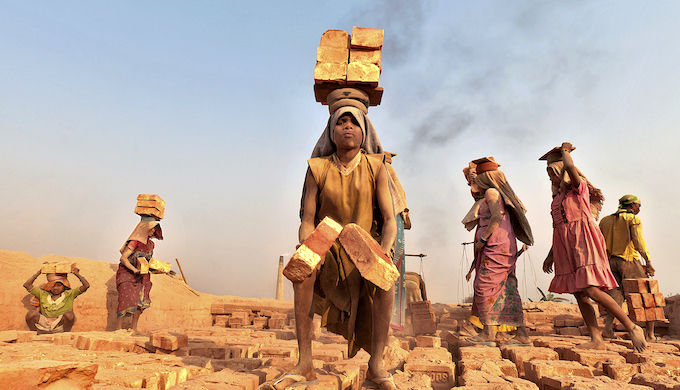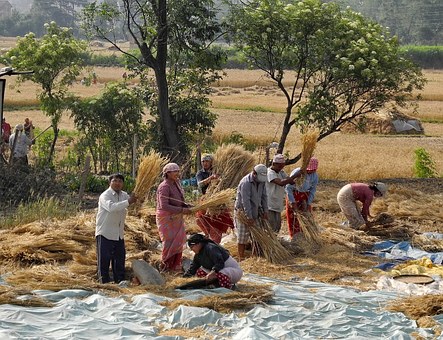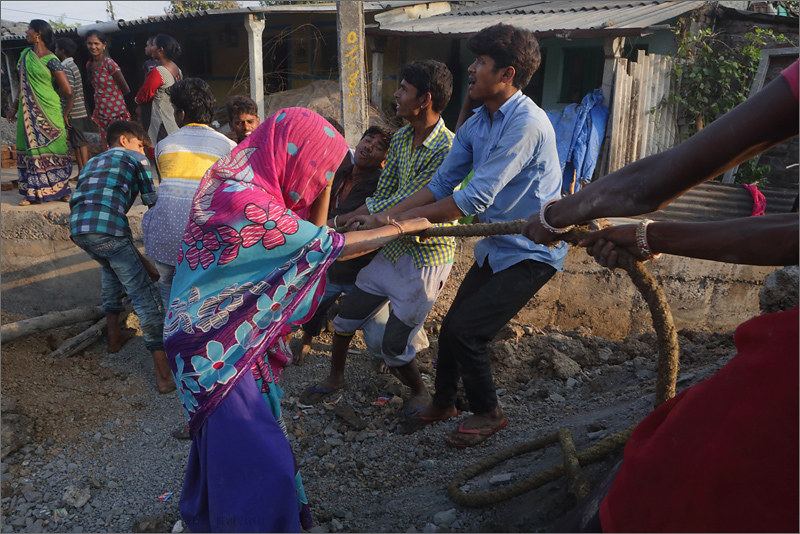There is no denying of the fact that tremendous economic inequalities exist in the world as far as men and women are concerned. This sharp economic inequality also gives way to differential access to healthcare and education, livelihood and career opportunities too.
Thus at a time such as the ongoing nationwide lockdown, it is the women who continue to suffer the most and bear the brunt of a throughly gendered public space. In India, a large section of women are employed in low paid informal sectors that promise meagre wages and maximum exploitation.
With women from marginalised and poor families more likely to have their women work in the informal sector, there are many constraints that these women face and they are more likely to find themselves in vulnerable work positions such as domestic workers or self-employ themselves in works that require domestic skills and no formal training. If one were to look at the figures from the Capital of the country, New Delhi and understand the degree to which women find themselves in the informal sector one would come across some alarming figures.
The data from the Periodic Labour Force Survey (which was conducted in 2017-18) showed that 88% of the total women’s employment were in the informal sector in India and they earned their wages by engaging in such work in Delhi itself.
Back in Delhi, one- third of the total number of women employed in the informal sector were seen to be employed in either domestic work or other works based on home-learnt skills or they were working as street vendors on the streets of the Capital.
In other avenues of the informal sector, women are employed as supporting workers and it is the men who can primarily be found at the construction site or in waste picking.
Gender Inequality and its Brunt Borne By Women
It becomes clear from the above argument that there is indeed a deeply entrenched gender inequality as far as access to employment opportunities is concerned and the COVID-19 pandemic is only intensifying the gaps. This has made the women in the informal workforce quite more vulnerable to further exploitation and marginalisation.
From health to economy- it is the women who have to bear a lot of exploitation and torture simply because they are women.
It is in this context that a recent study conducted by the Institute of Social Studies Trust becomes significant.
The COVID-19 lockdown and the impact of it on the women in the informal sector was studied through five micro-studies that focussed on workers living and working in Delhi in five sectors, namely domestic work, waste picking, street vending, home-based work and construction work.

The researchers engaged in collecting data for the study through a quantitative survey and qualitative interviews, both conducted over the telephone between April 15-May 3,2020. The survey respondents constituted of women between the ages of 20-60 years. 82% of the respondents interviewed were married, eight were divorced or separated and 19 among them were widows.
Economic Pressures and the Woman Worker in the Informal Sector
The survey found that a large portion of these women are finding it extremely difficult to make the two ends meet during the lockdown with lost wages and meagre savings. It wouldn’t be incorrect to say that the COVID-19 pandemic has underlined massive gender inequalities in India once again and shown us that women are at an unprecedented vulnerability at the moment.
These women have the burden of unpaid domestic work and an unequal distribution of domestic responsibilities in addition to the work that they perform outside. The lockdown has multiplied their tasks and burden, while there are no support structures at home to assist them.
This survey also shows us how there has been a major impact of the lockdown on the earnings of these women and 83% of the respondents covered by the study experienced an income decrement.
The report tells us that construction workers are a heavily hit section of the population followed by women who worked as street vendors. Amidst this situation it has become extremely difficult for these women to survive and sustain themselves and their families.
Moreover, 91% home based workers and 86% of waste pickers said that the lockdown had adversely impacted their earnings. For self-employed home-based women workers, delayed payments and broken supply chains were major concerns.

Waste pickers underlined that since all shops and residential societies had stringent restrictions on movement, it was becoming difficult to not only collect the waste but also when the waste was collected, they had to sell it at much reduced prices than they would have under normal times.
As far as women working as domestic helpers was concerned, they expressed that they were afraid that if the lockdown continued, their salaries would be further cut.
Their inability to travel to their employer’s homes due to intense police patrolling was the main reason why they weren’t able to go to work. Many women who did manage to travel, said that they were becoming increasingly afraid of contacting the disease.
Extreme food shortages, lack of adequate governmental camps and night shelters for assistance and the absence of social security were all problems that were making sustenance difficult for these women.
69% of the women who were picked as respondents also said that an extreme price rise was also making it difficult for them to access essentials amid the lockdown.
The above findings remind us that the current pandemic and the resultant economic crisis has unleashed unprecedented challenges for the informal sector and has most severely affected the women.
There is a need for a need for the government to concentrate on schemes like a minimum employment guarantee, reservation for women in the informal sector and the universalisation of the Public Distribution System (PDS) to lift up the informal sector in the post-lockdown days and more importantly to empower the women in it.














